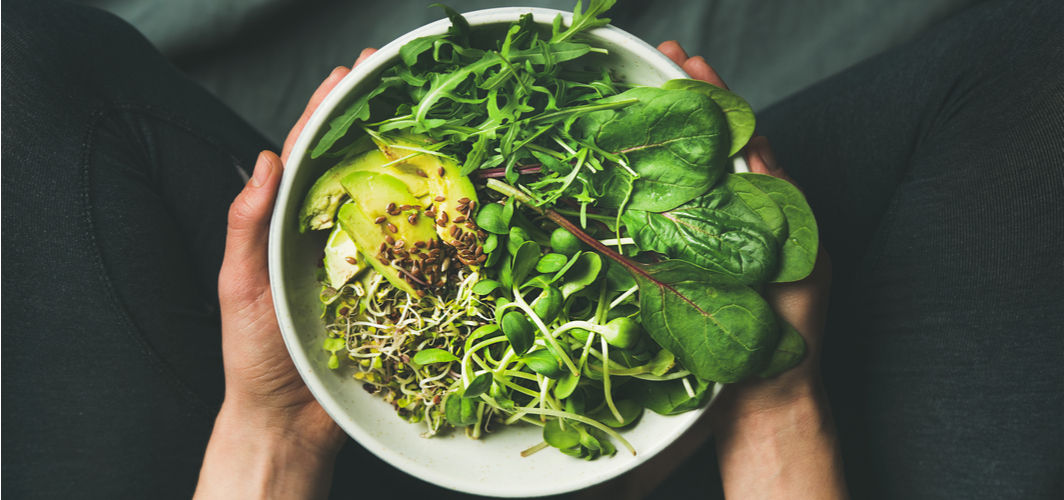Digestive Health
Loose Motion: Causes, Symptoms, Treatment, Diet & Complications
6 min read
By Apollo 24|7, Published on - 12 June 2023, Updated on - 07 August 2024
Share this article
0
0 like

When your stool becomes loose or watery, it is called loose motion or diarrhoea. Diarrhoea is a frequently encountered condition that typically resolves within one to three days without any intervention. Diarrhoea can occur for various reasons and often results in bloating, cramping in the lower abdomen, and occasional nausea. It can significantly disrupt your daily routine, causing discomfort, inconvenience, and potential complications if not properly managed. This article will explore the causes, symptoms, diagnosis, and treatment options for loose stools.
Loose Motion Causes
Some of the most common reasons for loose motion include:
1. Viral Causes
Viral infections such as norovirus, rotavirus, and other gastrointestinal viruses are common culprits behind loose motion. These infections often manifest with additional symptoms like nausea, vomiting, and fever.
2. Bacterial and Parasitic Causes
- Bacterial infections, such as E. coli, can cause loose motion by producing toxins that irritate the intestines. Consuming contaminated food or water introduces harmful bacteria that multiply in the intestines, leading to inflammation and increased fluid secretion. This results in loose, watery stools.
- Traveller's diarrhoea can be caused by bacterial pathogens like C. diff, which damage the intestinal lining and cause inflammation.
- Antibiotic use disrupts the natural gut balance, increasing the risk of C. diff infection.
- Parasitic infections, like Giardia, interfere with nutrient absorption in the small intestine, disrupting normal digestive function and causing loose stools and gastrointestinal symptoms.
3. Medications and Medical Conditions
- Certain medications such as penicillin (antibiotics) can disrupt the natural balance of bacteria in the gut, leading to loose motion.
- People with lactose intolerance have difficulty digesting lactose found in dairy products, which can cause loose motion.
- Inflammatory bowel disease (IBD), celiac disease, and other digestive disorders like microscopic colitis can also be associated with chronic loose motions.
Loose Motion Symptoms
The symptoms of loose motion may vary from person to person but commonly include:
- Abdominal cramps or pain
- Bloating and increased gas
- Nausea and vomiting
- Presence of blood or mucus in the stool
- Urgent need for frequent bowel movements
When to consult a doctor?
- Frequent and intense abdominal cramps or pain
- Persistent and severe bloating accompanied by increased gas
- Persistent nausea and vomiting, leading to dehydration
- Presence of blood or mucus in the stool indicates possible infection or inflammation
- High fever, typically above 102 degrees Fahrenheit (39 degrees Celsius)
- Severe weakness, fatigue, and lethargy due to fluid and electrolyte loss
Diagnosis of Loose Motion
To diagnose the cause of loose motion, doctors may recommend:
- Medical history and physical examination to assess symptoms and identify potential triggers.
- Diagnostic tests such as blood (complete hemogram), stool, and hydrogen breath tests identify infectious agents or underlying conditions.
- Endoscopic procedures like flexible sigmoidoscopy, colonoscopy, or upper endoscopy examine the gastrointestinal tract for abnormalities.
Loose Motion Treatment
Treatment for loose motion often involves a combination of self-care measures, lifestyle changes, and medical interventions:
1. Self-Care and Lifestyle Remedies
- Adequate hydration is crucial to replace lost fluids during diarrhoea. You can drink water, coconut water, or Oral Rehydration Solution (ORS) to prevent dehydration.
- Avoid caffeine and alcohol as they can worsen loose motion.
- You can also start reintroducing semisolid and low-fibre foods such as bananas, oatmeal and bread to the diet to aid in recovery.
- Avoid foods like dairy, high-fibre, and highly seasoned items as they may exacerbate loose motion.
- Over-the-counter anti-diarrhoeal medications may provide temporary relief, but seek medical advice before using them.
2. Medications and Medical Interventions
- Your doctor will prescribe antibiotics or anti-parasitic medications to combat the underlying infection.
- In cases of severe dehydration, your healthcare provider will give fluid replacement through oral rehydration solutions or intravenous fluids.
- Adjusting routine medications contributing to loose motion can help alleviate symptoms.
- Treating underlying conditions such as IBD or celiac disease can help manage chronic loose motion.
ORS For Treating Loose Motion
Oral Rehydration Solution plays a crucial role in managing loose motion. It helps prevent dehydration by replenishing lost fluids and electrolytes. ORS contains a balanced combination of salts and sugars that are easily absorbed by the body. It helps maintain the body's water balance and supports proper hydration during loose motion. ORS is particularly important for children and individuals with severe diarrhoea.
How To Make ORS At Home?
While pre-formulated ORS packets are readily available in the market, you can also prepare a simple ORS solution at home using the following ingredients:
- 1 litre (4 cups) of clean water
- 6 teaspoons of sugar
- 1/2 teaspoon of salt
Mix the sugar and salt into the clean water until they dissolve completely. Consume this solution in small sips throughout the day to replenish fluids and electrolytes lost due to loose motion. Remember to prepare fresh ORS daily and discard any unused solution after 24 hours.
What To Eat In Loose Motion?
When experiencing loose motion, it is important to consume foods that are easy to digest and help solidify the stool. Some recommended foods include:
- Bananas: They are easily digestible and contain essential nutrients.
- White rice: It is low in fibre and can help bind the stool.
- Boiled potatoes: They are gentle on the stomach and provide energy.
- Toast: Plain, white toast can be easily digested.
- Boiled chicken or fish: These lean protein sources are gentle on the digestive system.
What Foods To Avoid In Loose Motion?
To manage loose motion effectively, it is advisable to avoid certain foods that can worsen the condition. Foods to avoid include:
- Spicy and oily foods: They can irritate the digestive system and worsen diarrhoea.
- Dairy products: Lactose intolerance can contribute to loose motion, so it is best to avoid milk, cheese, and other dairy products.
- High-fibre foods: Foods like whole grains, beans, and raw vegetables can aggravate loose motion.
- Fatty and fried foods: They are difficult to digest and can exacerbate diarrhoea.
- Sugary and carbonated beverages: These can worsen diarrhoea and lead to dehydration.
Loose Motion Complications
Dehydration is a potential complication of loose motion and can be life-threatening. Signs of severe dehydration include:
- Excessive thirst
- Dry mouth or skin
- Little or no urination
- Weakness
- Dizziness
- Fatigue
- Dark-coloured urine
In adults, seek immediate care if experiencing:
- Fever of 102 degrees or higher
- Passing black stool
- Severe stomach pain
- Frequent vomiting
- Six or more stools in 24 hours
Infants and young children may exhibit additional signs of severe dehydration, such as:
- Dry mouth and tongue
- Crying without tears
- Sunken eyes
Seek immediate medical attention if any of these signs are observed in infants or young children.
Loose Motion Prevention
Preventing loose motion can be achieved through various measures:
- Practising good hand hygiene, including thorough handwashing, can help prevent the spread of infectious diarrhoea.
- Vaccination against rotavirus is recommended for infants to prevent viral diarrhoea.
- When travelling to countries with inadequate sanitation, taking food and water precautions is advisable to prevent traveller's diarrhoea. Carry a mineral water bottle and avoid drinking or eating from local shops.
- Always carry a hand sanitiser to keep your hands clean in the absence of soap and water.
- Check travel warnings and consult with a healthcare provider to minimise the risk of loose motion.
Also Read: Proven Tips To Stay Safe From Diarrhoea During Monsoon
Takeaway
Loose motion, or diarrhoea, is a common gastrointestinal problem with various causes. Individuals can effectively manage loose motion by understanding the causes, recognising the symptoms, seeking an appropriate diagnosis, and following the recommended treatments. However, seeking medical attention for persistent or severe cases is crucial to prevent complications. If you’re dealing with the symptoms of diarrhoea, consult our experts.
Medically reviewed by Dr Sonia Bhatt.
Digestive Health
Leave Comment
Recommended for you

Digestive Health
How Probiotics Keep the Digestive System in Great Shape
Research proves that probiotics help maintain a healthy and properly functioning digestive system that filters out and eliminates harmful microbes, chemicals, toxins, and waste products.

Digestive Health
5 Most Common Digestive Disorders Explained
Chronic constipation, diarrhea, acid reflux or GERD, lactose intolerance, and irritable bowel syndrome are some of the disorders that can adversely affect the digestive system.

Digestive Health
Endoscopy & Colonoscopy: How Often Should You Get One Done?
Both endoscopy and colonoscopy are non-surgical procedures to diagnose as well as treat conditions affecting the digestive tract.
Subscribe
Sign up for our free Health Library Daily Newsletter
Get doctor-approved health tips, news, and more.
Visual Stories

Hidden Health Benefits in a Bowl of Salad
Tap to continue exploring
Recommended for you

Digestive Health
How Probiotics Keep the Digestive System in Great Shape
Research proves that probiotics help maintain a healthy and properly functioning digestive system that filters out and eliminates harmful microbes, chemicals, toxins, and waste products.

Digestive Health
5 Most Common Digestive Disorders Explained
Chronic constipation, diarrhea, acid reflux or GERD, lactose intolerance, and irritable bowel syndrome are some of the disorders that can adversely affect the digestive system.

Digestive Health
Endoscopy & Colonoscopy: How Often Should You Get One Done?
Both endoscopy and colonoscopy are non-surgical procedures to diagnose as well as treat conditions affecting the digestive tract.